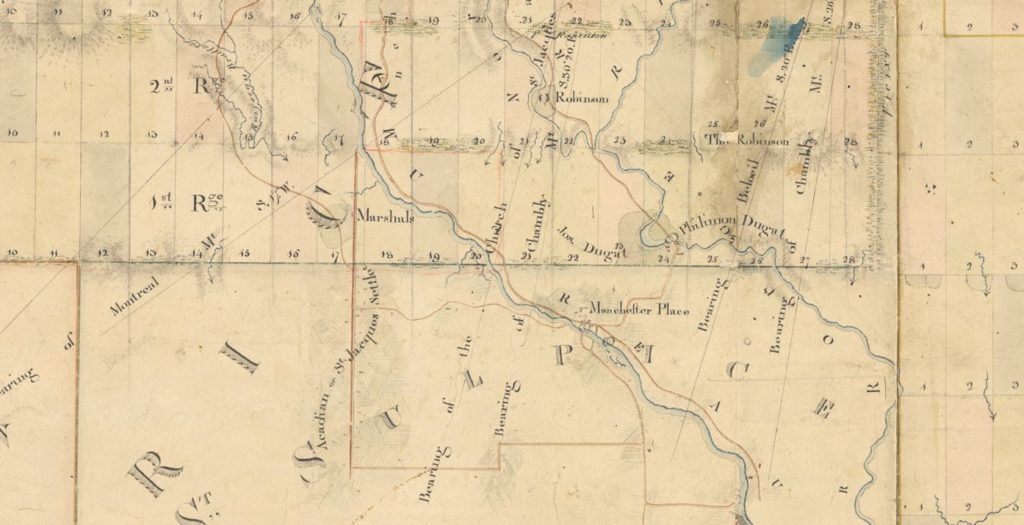Certain historical data allow us to establish the true beginning of settlements in Rawdon around the years 1816-1817.

It is also known that, in 1817, a settlement road linked Saint-Jacques-de-l'Achigan to the first ranges of Rawdon. A book by Guy Courteau and François Lanoue entitled "Une nouvelle Acadie - Saint-Jacques de l'Achigan 1772-1947" also mentions that, at the same time, Saint-Jacques parish priest Jean-Marie Madran was baptizing the children of Irish settlers who had come to Rawdon.
On this subject, in his book "Une bien belle histoire", the author Gérard Brady talks about the arrival of the Irish in Rawdon:
"It is well known that a good number of Irish immigrants came to clear land in Rawdon between 1816 and 1820. In general, they had fled Ireland where the revolution, the harassment and the misery made life very difficult. It is very likely that French Canadians joined these first Catholic settlers in Kildare and Rawdon. Having this in common, the Irish and the French Canadians or Acadians were not overly concerned with the hassles of the law and bureaucracy. So they settled, sometimes, wherever they pleased without having any title deeds, location tickets or authorizations whatsoever. Many of them were actual squatters, such that their names obviously did not appear on the first lists of official concession holders. These lists therefore suggested that the Rawdon and Kildare pioneers were almost exclusively English, Scottish and American. However, there is no doubt today that it was mainly the Irish who were responsible for the beginning of the settlement in the region. We must definitely attribute to them the title of founders of Rawdon. In fact, official documents of the era estimated the population in 1819 at 60 people, almost all of Irish origin.” |
Gérard Brady, Une bien belle histoire, 1987, p. 29 (translation)
The settlement of Rawdon continued in 1820 with the arrival of other ethnic groups. Thus, we note the arrival of Scots (from Montréal and New Glasgow), English (Montréal and Terrebonne), American Loyalists (New England) and a few French-Canadian families from the neighbouring village of Saint-Jacques. Some soldiers were also granted land as a thank you for their service in His Majesty's army. They were virtually the only ones to hold proper location tickets.
To remedy the illegal situation of many settlers who were basically squatters, the Crown Lands Committee decided, in July 1820, to issue the first location tickets to newly installed settlers. This was however not the case for the Irish settlers, who did not receive their legal titles until 1824.
In the meantime, many problems arose between these first “official” settlers and the Irish already there. Since the latter did not see the need to regularize their situation, there were numerous challenges to their ownership rights, which aggravated the climate between the two groups.
In May 1821, the government thus appointed Mr. Alexandre Rea as the land agent for Rawdon with the mission of finding a solution to legalize the situation of the Irish. He was also given the responsibility of issuing the location tickets and enforcing their obligations, namely, building a house, cultivating a few acres of land, paying the location rent, etc.
For more details on the early days of settlement, a link to Daniel Parkinson's Rawdon Township Opened to Settlers in 1820 is available on this site.
